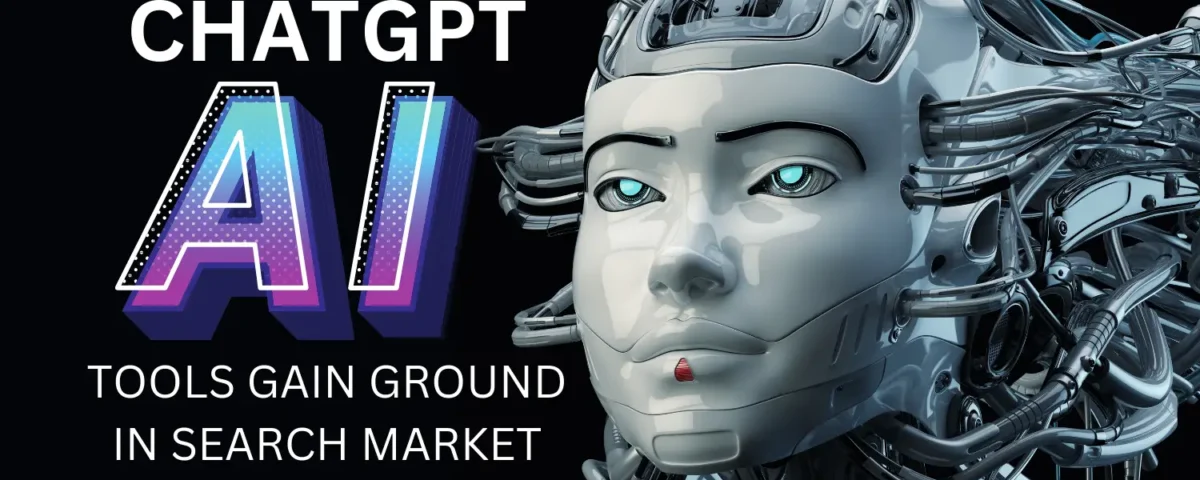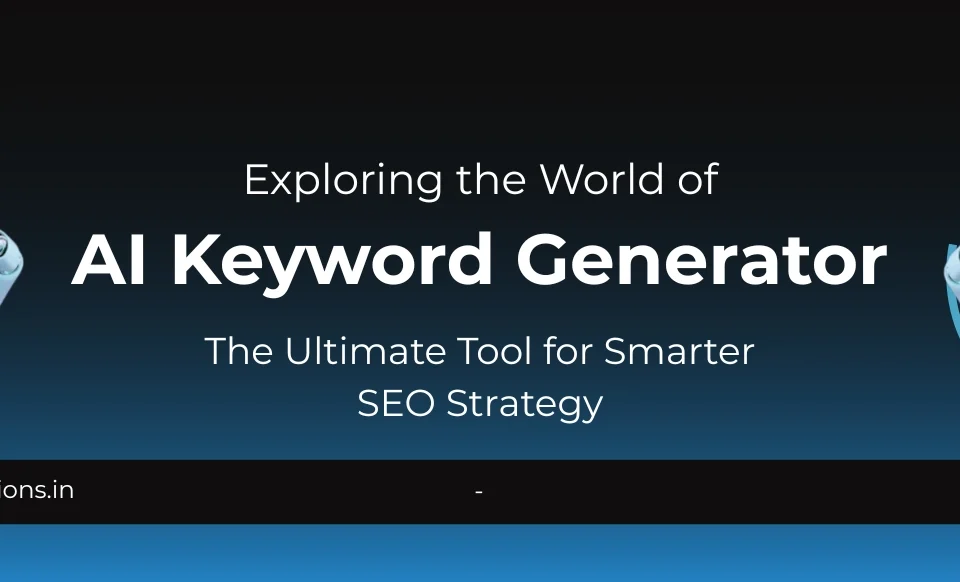Study: ChatGPT & AI Tools Gain Ground In Search Market

.Net Core Application Development
December 31, 2024
Custom E-Commerce Website Design Can Boost Your Business Growth in Delhi
January 7, 2025ChatGPT & AI Tools Gain Ground in Search Market
The digital search landscape is undergoing a revolutionary transformation. Traditional search engines are no longer the sole gateway to information. The rise of AI tools like ChatGPT and other generative AI systems is reshaping how users seek and interact with content online. These tools are not just gaining popularity; they are actively challenging the dominance of established search giants. Let’s explore how ChatGPT and AI tools are gaining traction in the search market and what this means for businesses and consumers.
The Evolution of Search
For decades, search engines have operated on a query-response model. Users type keywords into a search bar and receive a list of links ranked by relevance. While this method has been effective, it often requires users to sift through multiple results to find specific information. AI tools like ChatGPT, however, are changing the game by offering direct, conversational answers tailored to the user’s intent.
Unlike traditional search engines, generative AI systems use advanced algorithms and natural language processing (NLP) to understand queries more deeply. They generate personalized and contextual responses, providing an experience that feels more like a human interaction than a robotic search.
Why AI Tools Are Gaining Popularity
1. Conversational Interface
AI tools like ChatGPT excel in providing a conversational user interface. Instead of typing disjointed keywords, users can ask full-fledged questions or describe their needs in natural language. This user-friendly approach appeals to a broader audience, including those less tech-savvy.
2. Immediate and Relevant Answers
Generative AI eliminates the need to browse multiple links by delivering precise answers instantly. For example, a query about “How to optimize my website’s SEO” could result in a detailed, step-by-step guide from ChatGPT rather than a list of articles.
3. Enhanced Personalization
AI tools can remember past interactions (within session limits) to provide more relevant follow-ups. This level of personalization fosters loyalty and trust among users.
4. Integration Capabilities
Many businesses are integrating AI tools into their workflows, apps, and websites. From customer support to content creation, these tools streamline operations and enhance user experience, making them indispensable in modern digital ecosystems.
Impact on Traditional Search Engines
The growing adoption of AI tools poses both opportunities and challenges for traditional search engines like Google and Bing. These platforms are already adapting by incorporating AI features into their services. For instance, Google’s Bard and Microsoft’s integration of OpenAI technology in Bing demonstrate that even industry leaders recognize the shift toward conversational AI.
However, the competition is intensifying. AI tools are:
- Reducing Dependency on Search Engines: With tools like ChatGPT providing direct answers, users are less likely to visit search engines for basic queries.
- Creating New Entry Points: AI platforms are becoming alternative gateways to information, bypassing traditional search altogether.
- Influencing Search Algorithms: To stay relevant, search engines are refining their algorithms to prioritize content that aligns with AI-driven searches.
The Role of Businesses in the AI Search Ecosystem
For businesses, the rise of AI in search represents a dual-edged sword. On one hand, it opens up new opportunities for engagement. On the other, it demands a strategic pivot to ensure visibility in an AI-dominated landscape.
Optimizing for AI-Driven Search
- Structured Content AI tools rely on structured, easy-to-parse data to generate accurate responses. Businesses must adopt schema markup and other metadata strategies to make their content AI-friendly.
- Conversational Content Since AI tools favor natural language queries, creating conversational and context-rich content is crucial. Blogs, FAQs, and guides should be written in a tone that mimics everyday speech.
- Focus on Authority Generative AI often prioritizes information from authoritative sources. Building a strong online reputation and earning backlinks from credible websites can enhance your visibility in AI-generated results.
- Leverage AI for Content Creation AI tools themselves can be harnessed to produce high-quality, SEO-optimized content. By integrating AI into content strategies, businesses can stay ahead of the curve.
Benefits for Consumers
For consumers, the integration of AI in search tools means:
- Effortless Access to Information: Users can get precise answers without spending time navigating multiple web pages.
- Improved Decision-Making: Personalized responses help users make informed decisions quickly.
- 24/7 Assistance: AI tools are always available, offering immediate support regardless of time or location.
Challenges and Concerns
While the rise of AI in the search market is promising, it’s not without challenges:
- Accuracy of Information Generative AI tools sometimes produce incorrect or misleading information, underscoring the need for ongoing improvements.
- Privacy Concerns AI systems require vast amounts of data to function effectively. Ensuring user privacy while harnessing this data is a critical concern.
- Monopolization Risks As AI tools gain market share, there’s a risk that a few major players could dominate the ecosystem, stifling competition and innovation.
- Impact on SEO The shift toward AI-driven search could disrupt traditional SEO practices, forcing businesses to constantly adapt to evolving algorithms.
The Future of AI in Search
The future of AI in the search market is bright but complex. We can expect:
- Deeper Integration: AI will become more seamlessly integrated into everyday tools and platforms, making it ubiquitous in both personal and professional settings.
- Smarter Algorithms: Advances in AI will lead to more accurate and context-aware responses, further reducing the gap between human and machine interaction.
- Collaboration Between AI and Traditional Search: Instead of replacing search engines, AI tools might work alongside them, offering complementary capabilities.
Conclusion
ChatGPT and other AI tools are not just gaining ground in the search market—they are redefining it. By offering a conversational, personalized, and efficient alternative to traditional search engines, these tools are changing the way we interact with information. For businesses and consumers, this evolution presents immense opportunities and unique challenges.
To thrive in this new era, businesses must embrace AI’s potential, adapt their strategies, and prioritize delivering high-quality, authoritative, and conversational content. As AI continues to advance, the search market’s transformation is not just inevitable—it’s already here. Are you ready to adapt?


